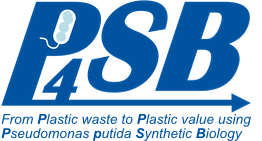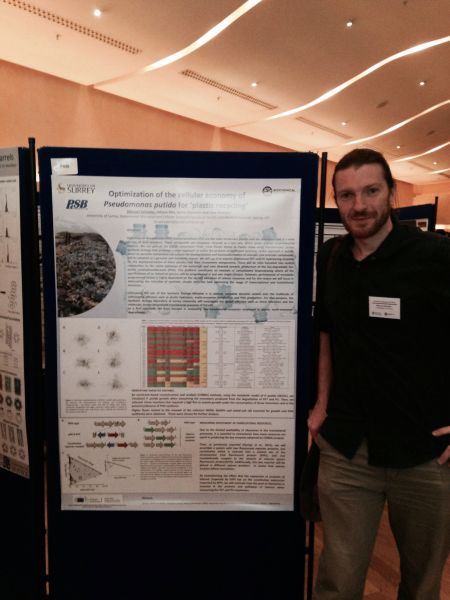Polyethylene terephthalate (PET) and polyurethane (PU) are the main oil-derived plastics and are massively used in a wide variety of daily products. These compounds are nowadays recycled at a low rate, which poses a great environmental concern. We are part of the H2020 consortium P4SB: From Plastic Waste to Plastic Value using Pseudomonas putida Synthetic Biology that proposes a novel approach to tackle the problem of inefficient recycling. In this approach P. putida, which its versatile metabolism can sustain the biodegradation and biotransformation of aliphatic and aromatic compounds, will be adopted as a genomic and metabolic chassis. We will use it to express engineered PET and PU hydrolysing enzymes for the depolymerisation of these plastics into their monomeric components. These will be then funneled into central metabolites by the native pathways of the bacterium and next directed towards production of the bio-degradable bio-plastic polyhydroxalkanoate. This platform constitutes an example of consolidated bioprocessing where all the specifications of an industrial process will be programmed in just one single catalyst. However, performance of metabolic programmed strains is highly dependent on the correct allocation of cellular resources and for this reason we will focus in attenuating the interplay of synthetic circuits with the host optimizing the usage of transcriptional and translational resources.






